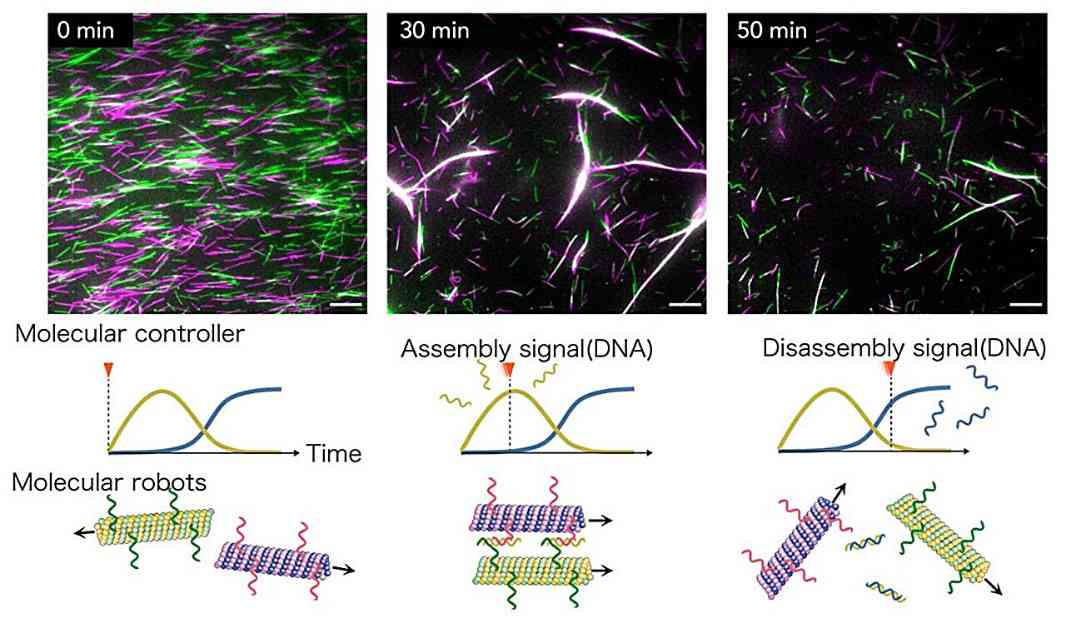Researchers from Tohoku University and Kyoto University have made a significant breakthrough in the field of molecular robotics. By developing a DNA-based molecular controller, they have achieved autonomous assembly and disassembly of molecular robots. This innovation has far-reaching implications for the fields of medicine and nanotechnology.
The molecular controller, consisting of specially designed DNA molecules and enzymes, interacts with molecular robots to direct their actions by emitting specific DNA molecules. This process allows the robots to self-assemble and disassemble without external intervention. This autonomous operation is particularly valuable as it enables the robots to function in environments where external signals are unable to reach.
The research team, led by Shin-ichiro M. Nomura from Tohoku University, included experts from Kyoto University and Johannes Gutenberg University Mainz. Their work builds upon previous studies on molecular robots, aiming to enhance their capabilities for medical treatments and diagnostics.
The molecular controller signals the assembly and disassembly of the molecular robots by sending out specific DNA commands. This triggers the robots to either come together or break apart in a programmed sequence. The controller acts as a sophisticated signal processor, orchestrating the movements of the robots without external interference.
The successful integration of the molecular controller with the molecular robots represents a significant advancement in the field. It opens up possibilities for more complex and advanced molecular systems that can perform intricate tasks autonomously. By following programmed commands, the molecular robots can work collaboratively to achieve objectives that would be impossible for individual robots.
The potential applications of this technology are vast, ranging from in-situ molecular recognition and diagnosis to smart drug delivery systems. With further development of the molecular controller and DNA circuits, researchers anticipate that swarm molecular robots will be able to process a broader range of biomolecular information automatically. This could lead to groundbreaking innovations in nanotechnology and medicine.
Overall, the research conducted by the team from Tohoku University and Kyoto University represents a significant step forward in the field of molecular robotics. Their work lays the foundation for the development of autonomous molecular systems with diverse applications in various industries. As technology continues to advance, the possibilities for molecular robots are endless, offering new solutions to complex challenges in the fields of medicine and nanotechnology.


